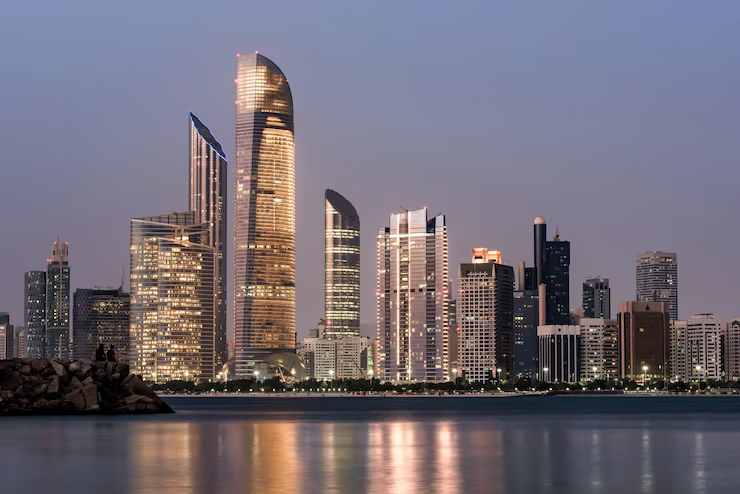The International Monetary Fund (IMF) has increased the UAE’s growth forecast for 2025 by 0.9 per cent, driven by robust growth in non-oil sectors and stable crude prices.
According to the IMF’s October edition of the World Economic Outlook (WEO), released on Tuesday, the UAE’s GDP is now expected to expand by 5.1 per cent in 2025, an improvement from the 4.2 per cent forecast in April. This follows an earlier revision in May when the IMF raised the 2024 growth estimate due to strong economic performance. For 2024, the overall real GDP growth is now forecasted at 4 per cent, up from the 3.5 per cent estimate in April.
Ali Al-Eyd, the head of the IMF’s staff team that visited the UAE in May, highlighted the breadth of the UAE’s economic growth, driven by robust activity in sectors such as tourism, construction, manufacturing, and financial services.
“Foreign demand for real estate, increased bilateral and multilateral ties, and the UAE’s safe haven status continue to drive rapid growth in housing prices and an increase in rents, while adding to ample domestic liquidity. Hydrocarbon GDP growth is expected to increase this year, including higher crude oil production from the UAE’s Opec+ quota increase,” Al-Eyd stated.
He also noted that geopolitical tensions have had a limited impact, and the UAE authorities were quick to respond to challenges like the recent flooding incident.
The non-oil sectors in the UAE have been thriving in the post-Covid era, with industries such as real estate, travel and tourism, trade, finance, retail, and aviation contributing significantly to the economic boom. This has led to substantial job creation in the private sector and heightened economic activity across the country.
On October 8, the UAE Cabinet approved the largest federal budget in the country’s history, amounting to Dh71.5 billion for 2025. The UAE has maintained a budget surplus, bolstered by increased oil revenues and new revenue streams such as corporate tax and income fees.
James Swanston, an economist for the MENA region at Capital Economics, commented, “The strength of the UAE’s balance sheet means that it is well positioned to keep fiscal policy loose. In the second quarter, it recorded a budget surplus of 5.4 per cent of GDP, and the authorities expect revenues to rise next year too – probably due to higher non-oil tax revenues thanks to a full year of corporation tax receipts. This is in addition to oil revenues potentially rising as the UAE raises output to take advantage of its higher base quota.”
The UAE has set an ambitious goal of growing its economy by 7 per cent annually, aiming to double its GDP to Dh3 trillion by 2030.
In May, Abdulla Bin Touq Al Marri, UAE’s Minister of Economy, emphasized that while global challenges have tested the country’s resilience, the goal remains to achieve 7 per cent growth this year. He also noted that the UAE is positioning itself to become a global hub for an innovation-based economy over the next decade.





